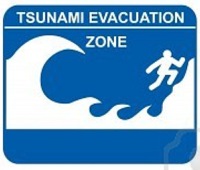Evacuation
From Nordan Symposia
Revision as of 18:50, 7 November 2011 by Rdavis (talk | contribs) (Created page with 'File:lighterstill.jpgright|frame ==Origin== Latin ''ēvacuāt''- participial stem of ''ēvacuā''-''re'' ([[http://en.wikipedia.org/wiki/Pliny Pl...')
Origin
Latin ēvacuāt- participial stem of ēvacuā-re ([Pliny), < ē out + vacuus empty. Compare French évacuer . 14th Century
Definitions
- 1:a. To empty, clear out the contents of (a vessel or receptacle). Chiefly in uses more or less technical: To empty (the stomach, bowels, or other bodily organ); to deplete (the body) by purging or vomiting (formerly also by bleeding, sudorifics, etc.); to exhaust (of air).
- b. To deprive (a term, concept, etc.) of its contents or value.
- c. Of a body of water, etc.: To empty, discharge itself.
- 2:a. To clear (a place) of inmates, etc., (a country) of inhabitants, troops, wild beasts.
- b. Of an army; To relinquish the occupation of (a country, fortress, town, position). Said also of the general in command, or of the authority that orders the withdrawal.
- c. To quit, withdraw from (a place or apartment).
- 3: To make void, annul, deprive of force or validity. Chiefly in religious and legal phraseology.
- 4:a. To clear out, remove (inhabitants, inmates, or troops).
- b. To remove (inhabitants of an area liable to aerial bombing or other hazards) to safer surroundings.
Description
Emergency evacuation is the immediate and rapid movement of people away from the threat or actual occurrence of a hazard. Examples range from the small scale evacuation of a building due to a bomb threat or fire to the large scale evacuation of a district because of a flood, bombardment or approaching weather system. In situations involving hazardous materials or possible contamination, evacuees may be decontaminated prior to being transported out of the contaminated area.[1]
